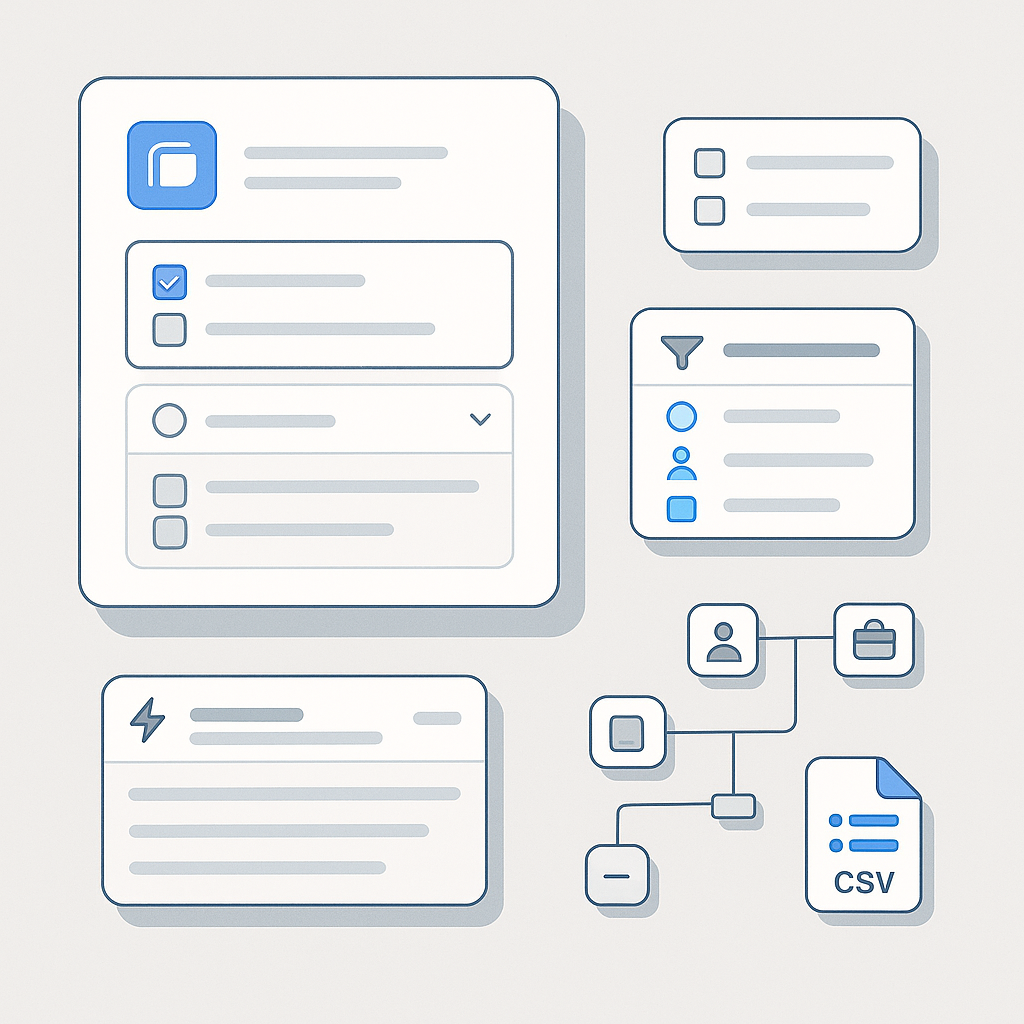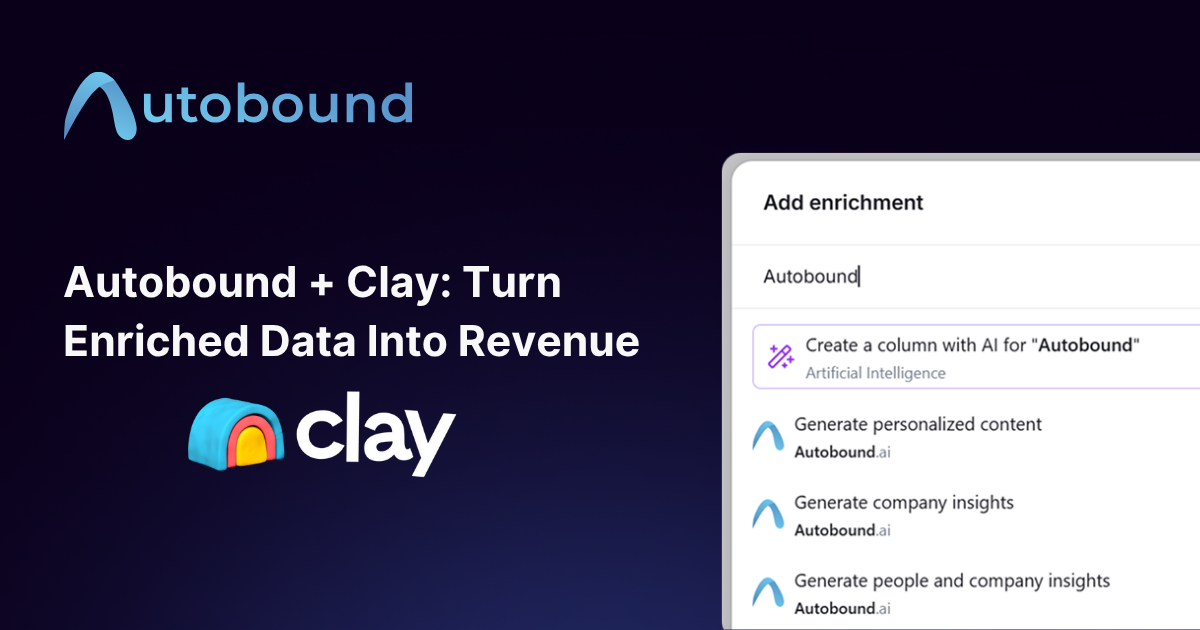Have you ever poured your heart and soul into a B2B deal, only to have it hinge on the opinion of a Sales Engineer? You're not alone. In the ever-evolving world of B2B, where technical solutions are becoming increasingly complex, Sales Engineers have emerged as the influential gatekeepers of purchasing decisions. They're the ones who can make or break your deal, and for good reason. As businesses demand more sophisticated technology and software, Sales Engineers bridge the crucial gap between sales enthusiasm and technical practicality, providing the in-depth product knowledge and real-world insights that directly influence decision-makers (“Sales industry's 'always be closing' mantra could get boost from AI†| Fox Business).
But here's the catch: selling to Sales Engineers isn't about slick presentations or aggressive closing tactics. It's about forging genuine connections, speaking their language, and demonstrating a deep understanding of their technical challenges. This guide is your secret weapon to navigating this critical landscape. We'll dive into the minds of Sales Engineers, uncovering their motivations, pain points, and the secrets to crafting email outreach that resonates. Get ready to transform technical skepticism into enthusiastic support, turning Sales Engineers from gatekeepers into your most valuable advocates.
Decoding the SE: Who They Are & What Makes Them Tick
Who They Are
Sales Engineers are the unsung heroes of the B2B sales process, the technical masterminds who keep the gears turning. They possess an unparalleled depth of product knowledge, capable of answering the most intricate questions, designing custom solutions that fit like a glove, and soothing any technical concerns that might arise. But they're much more than just tech support—they're trusted advisors, guiding buyers through the often-overwhelming process of implementing new technologies and ensuring the chosen solution aligns perfectly with their unique needs (“Sales industry's 'always be closing' mantra could get boost from AI†| Fox Business).
What Matters to Sales Engineers
- Technical Depth: Sales Engineers are driven by a thirst for knowledge, a deep-seated passion for understanding the intricate details of how things work. They're the ones who can explain not just what a product does, but the elegant engineering behind it, using that knowledge to solve complex technical challenges that leave others scratching their heads.
- Practicality: Let's face it, Sales Engineers have a low tolerance for fluff. They can spot empty marketing jargon from a mile away (“Autobound Review: Is it really worth the hype? [2024 updated]â€). What they crave are practical solutions, tangible results, and a clear understanding of how your product will deliver real-world value and address their specific pain points.
- Credibility and Trust: As trusted advisors, Sales Engineers place a premium on honesty, transparency, and solutions grounded in evidence (The one content best practice no one is talking about | Modus). They're far more likely to trust vendors who provide clear, concise information, backing up their claims with data, real-world examples, and a genuine desire to solve problems, not just close deals.
Their Influence on Buying Decisions
The role of a Sales Engineer has transcended the days of being brought in at the last minute for a quick technical thumbs-up. Today, they're integral throughout the entire B2B buyer journey, from those initial product demos that spark excitement to the detailed implementation planning that ensures a smooth rollout. In fact, industry research suggests that a growing number of B2B buyers rely on external influencers like Sales Engineers to guide their purchasing decisions. This means winning over these technical gurus is no longer a nice-to-have—it's a strategic imperative for any B2B company looking to thrive.
The SE Struggle is Real: Addressing Their Biggest Challenges
Picture this: you're a Sales Engineer juggling a dozen deals, each with its own unique set of technical requirements, demanding stakeholders, and looming deadlines. Your inbox is a warzone, flooded with vendor pitches that blur together in a sea of jargon and empty promises. You're in a constant race against time, evaluating solutions, providing expert technical guidance, and keeping internal teams aligned, all while trying to maintain a semblance of sanity. This isn't an exaggeration—it's the daily reality for many Sales Engineers. To truly connect with this audience, you need to understand the very real challenges they face:
- Information Overload: With the sheer volume of business communications sent daily, it's no surprise that professionals face information overload. To cut through this noise and capture the attention of a Sales Engineer, your message needs to be laser-focused, offering immediate value and demonstrating a clear understanding of their specific needs.
- Time Constraints: Sales Engineers are the ultimate multitaskers, constantly juggling competing priorities and deadlines. They don't have time for long-winded pitches or generic presentations. Respect their time by being concise, getting straight to the point, and offering easily digestible information that allows them to quickly assess relevance.
- Generic Pitches: Nothing elicits an eye roll from a Sales Engineer faster than a generic sales pitch that lacks technical depth or relevance (“Autobound Review: Is it really worth the hype? [2024 updated]â€). They can spot a mass email a mile away, so ditch the templates and personalize your outreach. Demonstrate a genuine understanding of their technical challenges, using their language and showcasing how your solution provides a tailored solution.
- Lack of Practical Proof: Sales Engineers are a skeptical bunch—and for good reason. They're responsible for ensuring that the solutions they recommend actually deliver on their promises. Instead of relying on hype or marketing fluff, back up your claims with concrete proof points. Think case studies, data, technical documentation—anything that provides tangible evidence and satisfies their need for technical validation (The one content best practice no one is talking about | Modus).
Inbox Intrigue: Email Strategies That Resonate with SEs
In the crowded arena of B2B sales, your email is often the first impression you make on a Sales Engineer. It's your digital handshake, and to stand out from the competition, you need a strategic approach that goes beyond the generic and speaks directly to their technical hearts. Here's how to craft emails that Sales Engineers will actually want to read, respond to, and even—dare we say—get excited about:
Subject Line Strategies That Work
- Keep it Short, Clear, and Benefit-Driven: Your subject line is your five-second pitch, your one shot to convince them to open your email instead of relegating it to the digital abyss. Keep it concise, crystal clear, and focus on the immediate value proposition for the Sales Engineer. Think of it as a headline that promises to solve a specific problem or pique their technical curiosity.
- Examples: "Streamline Your Demo Environment Setup," "Solve Data Security Concerns with Our Proven Solution," "[Mutual Connection] Recommended I Connect."
Opening Lines That Cut Through the Noise
- Personalize Immediately: Let's be honest, nobody wants to feel like they're on the receiving end of a mass email blast. Instead of a generic greeting, personalize your opening line by referencing a shared connection, a recent event the Sales Engineer attended, or a technical challenge relevant to their role (“Autobound vs Quicklines 2023 Comparisonâ€). This shows that you've done your homework, you value their time, and you're not just sending out generic messages.
- Example: “Hi [SE Name], I saw you presented at [Event] on [Topic] – impressive work!†or “Struggling to manage complex demo environments? We feel your pain.â€
Body Content That Engages
- Focus on Specific Pain Points and Solutions: Don't beat around the bush—get straight to the heart of the matter. Directly address the Sales Engineer's challenges and demonstrate a clear understanding of how your solution helps them overcome those obstacles. Use their language, acknowledge their expertise, and show that you're not just trying to sell them something—you're offering a solution to a problem they actually face.
- Emphasize Technical Details and Proof Points: Sales Engineers are wired to crave technical details, so don't be afraid to get into the weeds. Provide in-depth information, data, or case studies that validate your solution's effectiveness (The one content best practice no one is talking about | Modus). Think of it as providing the technical specifications that satisfy their need for in-depth understanding.
- Use a Conversational, Respectful Tone: Ditch the jargon and lose the overly promotional language (Content Marketing for "Boring" Industries: 10 Tips for Creating Interesting Content). Instead, adopt a tone that reflects understanding, expertise, and a genuine desire to connect. Write as if you're having a conversation with a technical peer, not delivering a sales pitch.
- Keep it Concise and Actionable: Remember, Sales Engineers are busy people. Respect their time by getting straight to the point, using bullet points, and providing a clear call to action. Make it easy for them to understand the value proposition and take the next step.
Call to Action (CTA)
- Offer Something Valuable and Easy: Instead of a generic "schedule a demo" request, offer something truly valuable and relevant to their needs. Think a technical whitepaper, a case study that resonates with their challenges, or access to a free demo environment sandbox. Make it easy for them to take the next step and explore further without feeling pressured.
- Examples: "Download our technical whitepaper on [topic]" or "Access our free demo environment sandbox."
Skip the Blank Page: Proven Templates to Engage Sales Engineers
Template 1: Introducing a Solution to a Technical Pain Point
Subject: Tired of Slow Demo Environments? [Your Solution] Can Help
Body:
Hi [SE Name],
I came across your profile on LinkedIn and was impressed by your expertise in cloud infrastructure. At [Your Company], we've been laser-focused on helping teams like yours overcome a common challenge: slow and cumbersome demo environments.
[Your Solution] is designed specifically to address this by providing on-demand, scalable demo environments that can be spun up in minutes. We've seen companies achieve a 90% reduction in demo setup time by implementing our solution, and I'm confident we can do the same for you.
Would you be open to a quick call next week to discuss how [Your Solution] can help your team streamline processes and achieve better outcomes?
Best,
[Your Name]
Template 2: Following Up After a Trade Show or Event
Subject: Great to Connect at [Event Name] – Let’s Continue the Conversation
Body:
Hi [SE Name],
It was a pleasure meeting you at Cloud Innovation Summit last week. I particularly enjoyed our conversation about containerization and your insights on Kubernetes orchestration.
As promised, I'm following up to share some additional information about [Your Solution]. We've helped companies like Acme Corp achieve a 40% increase in deployment speed by leveraging our containerized microservices architecture.
Would you be available for a brief call next week to explore how we can help your team achieve similar success? I'm confident that our solution aligns perfectly with your expertise in cloud-native development.
Best regards,
[Your Name]
Template 3: Leveraging a Mutual Connection or Referral
Subject: Introduction from [Mutual Connection] – [Your Company]
Body:
Hi [SE Name],
I'm reaching out at the suggestion of our mutual connection, [Mutual Connection Name], who thought you might be interested in learning more about [Your Company] and our work in cybersecurity.
We're helping companies like yours implement robust, zero-trust security architectures to protect against evolving threats. [Mutual Connection Name] mentioned you're currently working on a project to enhance data security, and I believe our solution could be a valuable asset to your team, especially given your expertise in network security.
Would you be open to a quick introductory call to discuss this further? I'm confident that we can provide valuable insights and explore potential synergies.
Best,
[Your Name]
Template 4: Sharing a Relevant Case Study or Customer Success Story
Subject: How [Customer Name] Solved Data Silo Challenges with [Your Solution]
Body:
Hi [SE Name],
I wanted to share a recent case study that I thought might be relevant to your work at [Company Name], particularly your focus on data integration. It highlights how Data Solutions Inc., a company in your industry, successfully addressed data silo challenges by implementing [Your Solution].
In the case study, you'll learn how Data Solutions Inc. achieved a 25% improvement in data visibility and overcame key obstacles similar to the ones you're facing. You can download the full case study here: [Link to Case Study]
I'd be happy to answer any questions you might have or discuss the technical details further. Feel free to schedule a call at your convenience: [Link to Scheduling Tool]
Best regards,
[Your Name]
Beyond the Inbox: Nurturing SE Relationships for Long-Term Success
Getting that initial meeting with a Sales Engineer is a great first step, but building a lasting, mutually beneficial relationship requires a long-term perspective and a commitment to providing ongoing value. Think of it like nurturing a plant—it needs consistent care and attention to truly flourish. Here's how to cultivate those connections and transform technical experts into trusted advocates:
Provide Ongoing Value
Don't let your communication fizzle out after the first email exchange. Instead, position yourself as a valuable resource by sharing relevant and insightful content that demonstrates your understanding of their world. Think industry reports, technical articles that delve into the latest advancements, or invitations to exclusive webinars featuring industry thought leaders. The key is to provide genuine value that helps them stay ahead of the curve and tackles their pain points head-on.
Engage on Social Media
In today's digital age, social media platforms like LinkedIn have become invaluable tools for building professional relationships. Connect with Sales Engineers, engage with their content by leaving thoughtful comments, share your insights on industry trends, and participate in relevant discussions. Building a genuine online rapport can go a long way in establishing trust and credibility. Remember, authentic engagement is key—nobody likes to feel like they're being sold to on social media.
Seek Collaboration Opportunities
One of the most powerful ways to solidify a relationship with a Sales Engineer is to involve them in collaborative projects. Invite them to contribute to case studies, co-host webinars, or participate in the creation of content that highlights their expertise. This not only strengthens your bond but also positions your company as a thought leader and demonstrates your genuine respect for their knowledge.
Did it Work? Tracking What Matters in SE Outreach
In the data-driven world of B2B, simply sending emails and hoping for the best isn't enough. To truly optimize your outreach efforts, you need to track key metrics that provide insights into what's working, what's not, and how to continuously improve your approach. Think of it as using data to refine your sales compass, ensuring that you're heading in the right direction.
Key Metrics to Track
- Open and Click-Through Rates: These metrics are your first line of defense in gauging the effectiveness of your email subject lines and calls to action. Low open rates might indicate that your subject lines aren't compelling enough, while low click-through rates could signal a disconnect between your email content and your CTA. Experiment with different approaches, test different variables, and use the data to refine your messaging.
- Response Rates: This metric tells you how engaging your emails truly are. Track the percentage of Sales Engineers who reply to your emails to measure how well your message is resonating. If you're seeing low response rates, it might be time to re-evaluate your messaging, personalization tactics, and the value proposition you're offering.
- Meeting Conversion Rates: Ultimately, the success of your outreach boils down to whether or not it's driving tangible sales opportunities. Track how many email interactions lead to actual meetings or calls with your sales team. This metric helps you understand the overall effectiveness of your outreach in moving prospects through the sales funnel.
Using Data to Optimize
- Analyze, Experiment, and Refine: Don't let your data gather dust—put it to work! Analyze the performance of your email campaigns to identify patterns and trends. Look for subject lines, content, and CTAs that generate the highest engagement and use those insights to inform your future outreach.
- Embrace the Power of A/B Testing: A/B testing is your secret weapon for optimizing email campaigns. By testing different versions of your emails—different subject lines, calls to action, content formats—you can identify the elements that resonate most effectively with your target audience. This data-driven approach allows you to continuously refine your outreach and improve your results over time.
Mastering the SE Sale: Your Path to B2B Growth
In the rapidly evolving world of B2B, where technical solutions reign supreme, winning over Sales Engineers is no longer a nice-to-have—it's a strategic imperative for achieving sustainable growth. By shifting your mindset from selling to building relationships, you can unlock a powerful network of advocates who can make or break your deals. Remember, selling to Sales Engineers is about:
- Speaking Their Language: Ditch the jargon, embrace technical details, and demonstrate a genuine understanding of their world.
- Providing Consistent Value: Become a trusted resource by sharing relevant content, engaging in meaningful conversations, and offering solutions that address their specific pain points.
- Building Authentic Relationships: Nurture connections, seek collaboration opportunities, and treat Sales Engineers as the valuable partners they are.
By embracing the strategies and templates outlined in this guide, you can transform your approach to selling to Sales Engineers, turning technical skepticism into enthusiastic support and unlocking a powerful engine for B2B growth.
About Autobound
Autobound's leading AI-powered platform delivers 350+ unique insights for go-to-market teams from financial filings, social media activity, 35 news events, competitor trends, job changes and more. Trusted by 7,000+ companies including TechTarget and validated by 220+ 5-star G2 reviews, we're unlocking hyper-personalization at scale, with native integrations for Salesloft, Outreach, and more. Leverage our developer-friendly API, try our Chrome extension, try our platform free, or contact our team to eliminate guesswork and drive measurable growth →
Built with love in San Francisco, CA




